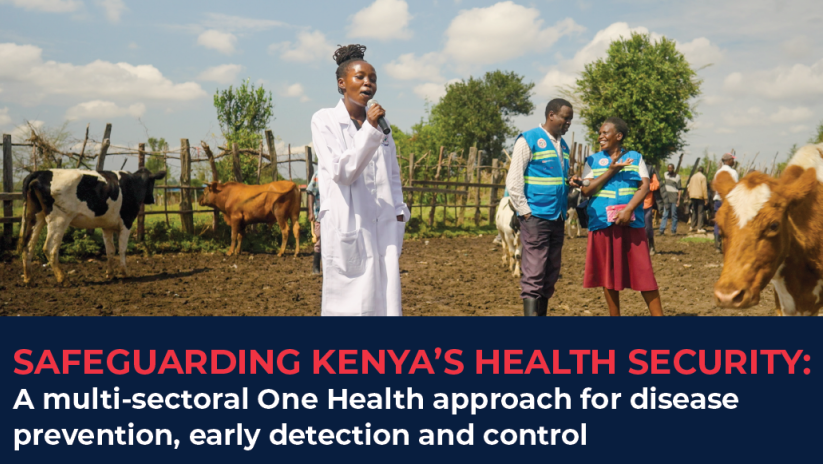
Kenya Red Cross presented their work in One Health and Global health Security at the International Conference on Public Health in Africa in Lusaka, Zambia (CPHIA 2023).
Kenya has implemented a Community Epidemic and Pandemic Preparedness Program (CP3) which adopts a One Health approach to strengthen community resilience. The CP3 program focuses on community-based surveillance for early detection of diseases and the multisectoral coordination of key stakeholders in disease prevention, control, and response activities.
The program's methodology involves the analysis of two datasets: CBS alerts and animal vaccinations in specific target areas. Trained community health promoters and volunteers identify and report alert signs and symptoms of potential health risks in their communities. The results of the program's activities in 2022 include the detection of 270 alerts (74 human and 196 animal), with 36% of these alerts verified as true. These alerts cover various health risks, including animal rabies and anthrax. The program's response involved the support of community members, private veterinary officers, and partners such as Vétérinaires Sans Frontières (VSF) Germany.
The human-animal interfacing in the target areas raises significant public health risks of zoonosis with great socio-economic negative outcomes. The program's focus on early detection, early action, and a community-centric One Health approach underscores the critical role of community-based surveillance in holistically addressing epidemics and pandemics. This is an important topic that will be brought up at the upcoming International Conference on Public Health in Africa (CPHIA). Leaders across Africa will highlight their countries progress in health and science, thereby supporting each other. Community-based surveillance and epidemic preparedness ties into the conversation on creating more resilient health systems for the future.



